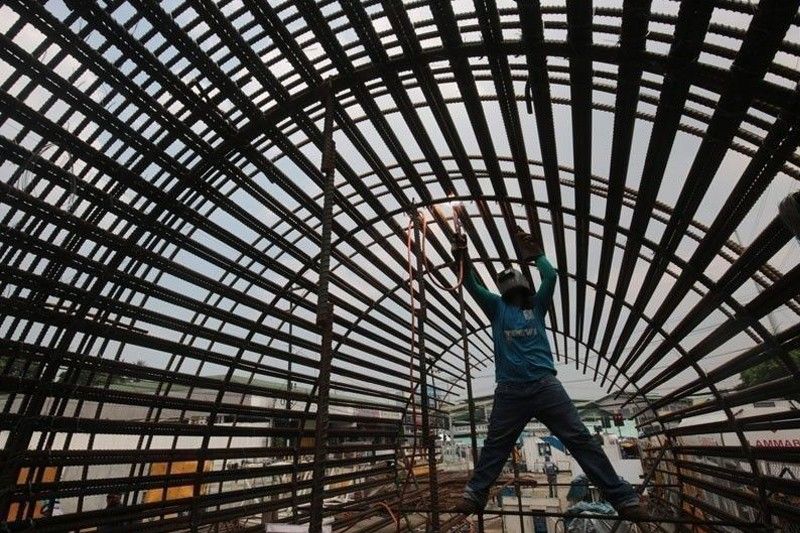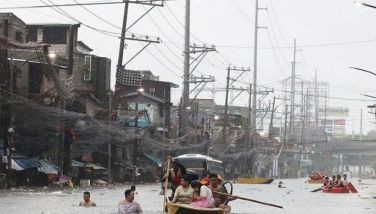‘Infrastructure spending needs to be maintained’

MANILA, Philippines — The next administration would have to sustain the infrastructure spending of the Duterte administration to help in the employment recovery of the Philippines from the pandemic, according to global advisory firm Oxford Economics.
In an email, assistant economist at Oxford Economics Makoto Tsuchiya said one of the biggest achievements of President Duterte is reducing the infrastructure gap through its flagship massive infrastructure program.
“We would look for the next administration to continue with Duterte’s legacy on focusing on infrastructure spending, as it tends to have a high fiscal multiplier and directly generates employment,” Tsuchiya said.
Infrastructure spending averaged at least five percent of gross domestic product (GDP) over the past six years. This is equivalent to at least P1 trillion annually.
Prior to the current administration, infrastructure spending was estimated at a mere P100.3 billion to nearly P400 billion from 2001 to 2016, or just three percent of GDP per year. Worse, less than two percent of GDP annually was allocated for infrastructure in the past 20 to 30 years.
However, the Philippines still ranks low on the infrastructure pillar of the World Bank’s Global Competitiveness Index, behind some of its Southeast Asian neighbors such as Indonesia and Vietnam, that also have low wages and are competing with the Philippines for foreign direct investments.
But Tsuchiya warned that the government should move toward a fiscal consolidation path that is credible to investors and credit agencies.
He said doing so would prevent a significant increase in debt servicing costs, eroding government spending on infrastructure and other social enhancing policies.
“It will be equally important to reduce the cost of doing business in the country by removing the persistent bureaucratic bottlenecks, which is currently making the country less attractive as a destination of foreign investment relative to others in the region,” Tsuchiya said.
Further, he said the passage of the economic liberalizations bills namely the amendments to the Public Service Act, Foreign Investment Act, and Retail Trade Liberalization Act would attract more foreign investment by loosening some of the regulations imposed on foreign capital.
“This is needed as fiscal constraints require greater involvement by the private sector in meeting the infrastructure needs going forward, including an increase in public, private partnerships,” Tsuchiya said.
- Latest
- Trending






























